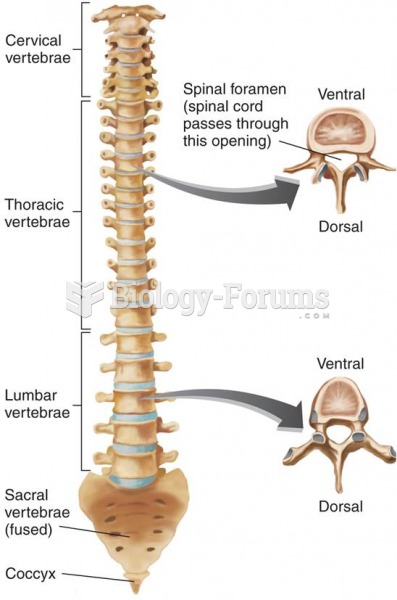|
|
|
Approximately one in four people diagnosed with diabetes will develop foot problems. Of these, about one-third will require lower extremity amputation.
Oxytocin is recommended only for pregnancies that have a medical reason for inducing labor (such as eclampsia) and is not recommended for elective procedures or for making the birthing process more convenient.
Aspirin is the most widely used drug in the world. It has even been recognized as such by the Guinness Book of World Records.
Asthma occurs in one in 11 children and in one in 12 adults. African Americans and Latinos have a higher risk for developing asthma than other groups.
Multiple experimental evidences have confirmed that at the molecular level, cancer is caused by lesions in cellular DNA.







